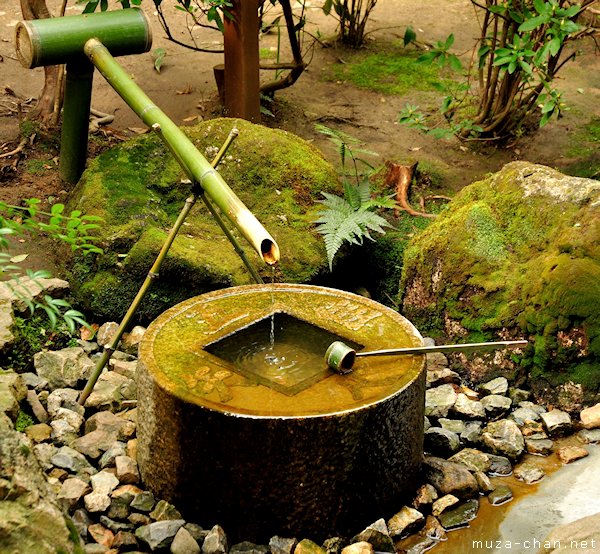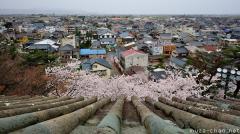Next to the Japanese tea-houses, you will usually find a small water basin made of stone, with water flowing through a bamboo pipe (kakei). This is called tsukubai and it is used by visitors for the cleansing ritual which consists in hands washing and mouth rinsing.
But the most famous tsukubai from Japan is located inside a Zen temple from Kyoto, at Ryoan-ji, and it is that famous because of its Zen inscription: taken separately, the four kanji are meaningless, but if they are read including the middle square hole (口), they become 吾 唯 足 知 - “ware tada taru shiru”. A literal translation would be “I only know enough", but a more accurate translation would be “I learn only to be satisfied". The real meaning of the phrase is that what you have is all you need: if you learn to be satisfied with the things as they are, then you are spiritually rich, while if you’re not contented then you are spiritually poor (even if you’re materially wealthy)…
EXIF Info:
|
Yesterday’s Japan Photo:Maruoka Castle’s unique stone roof tiles |




